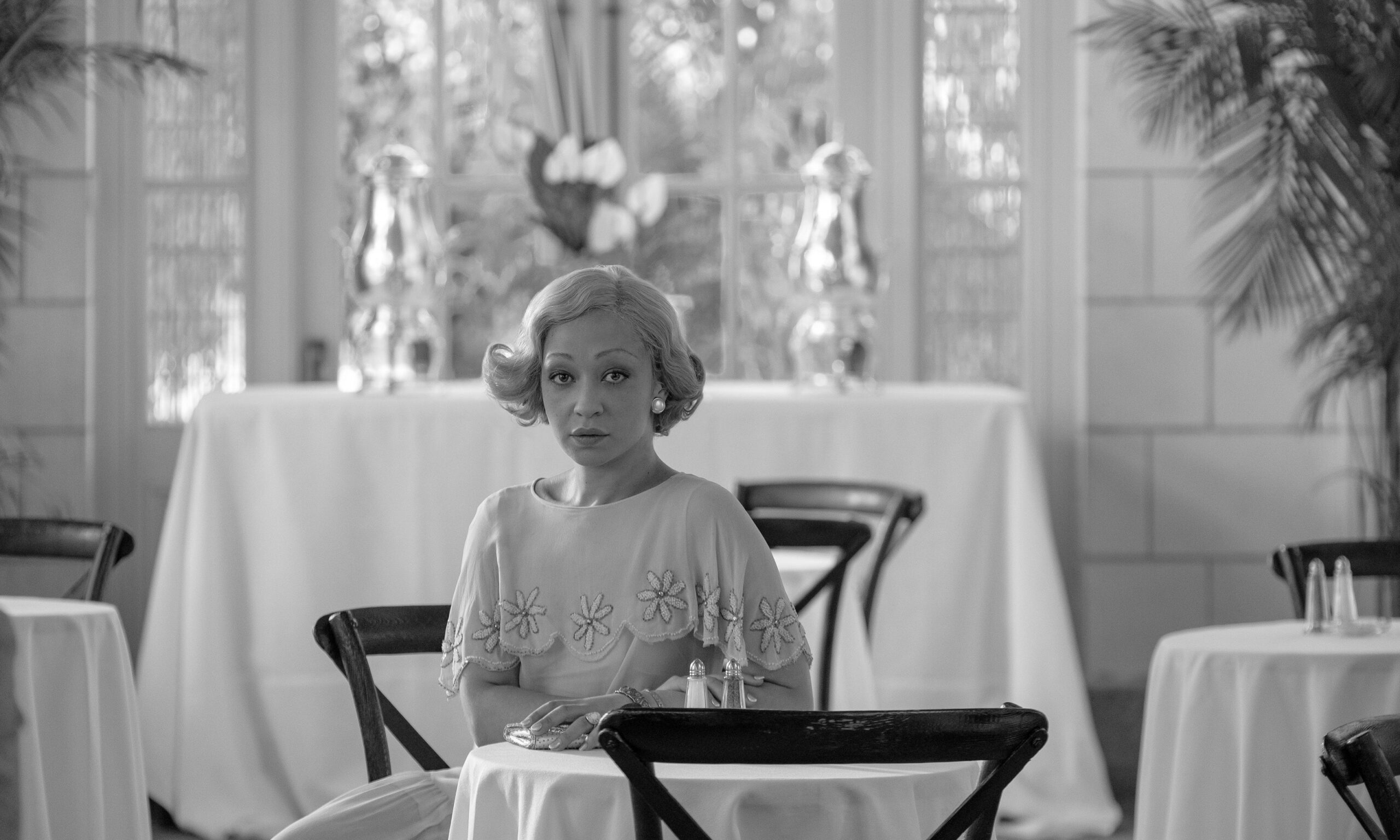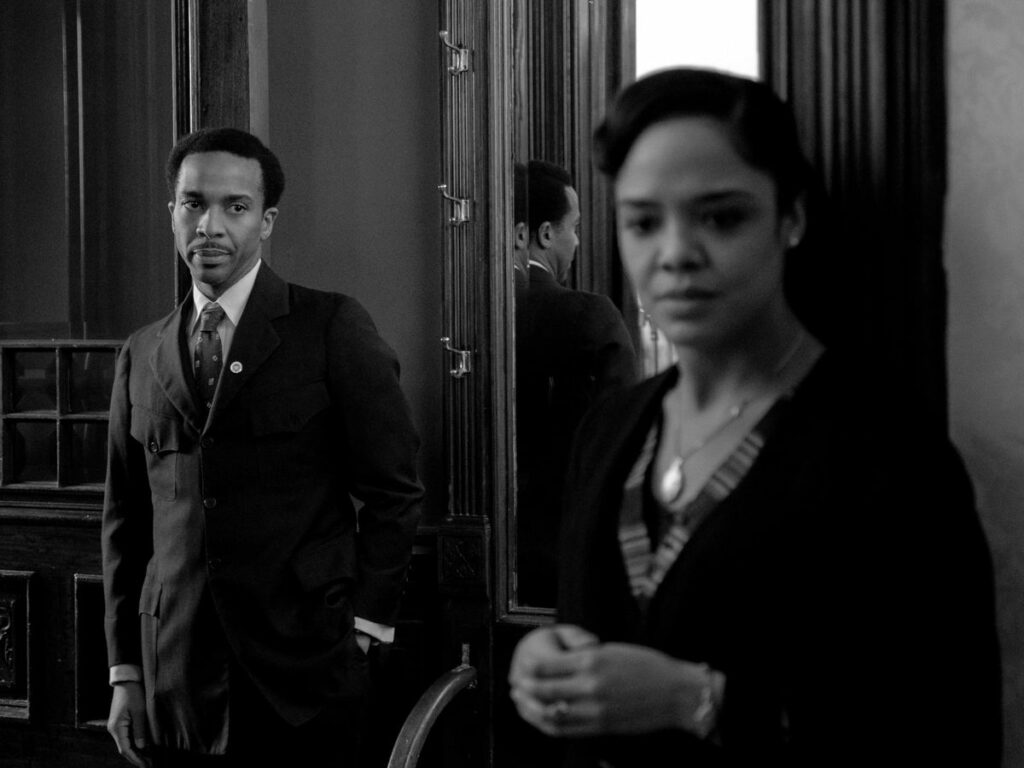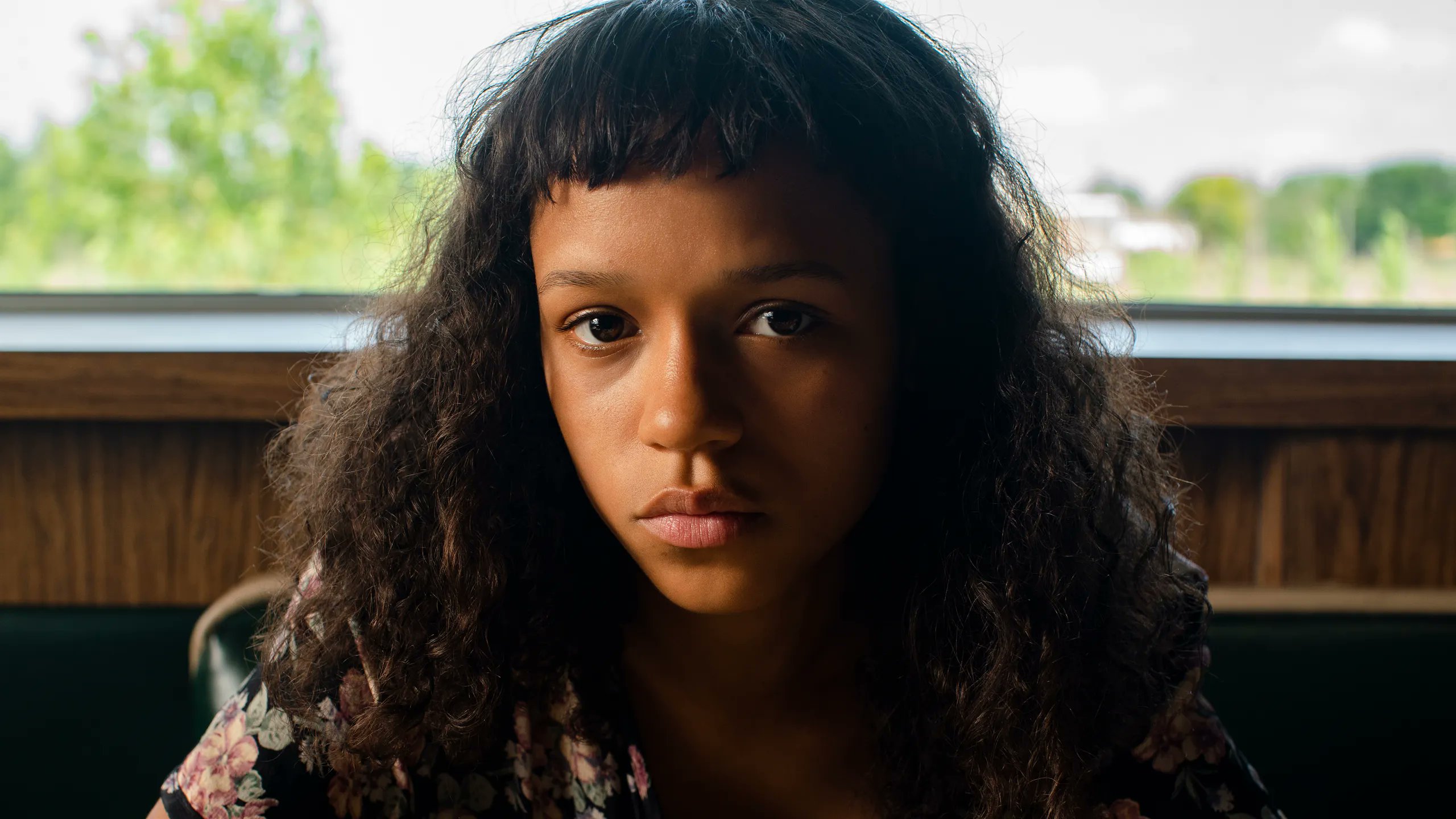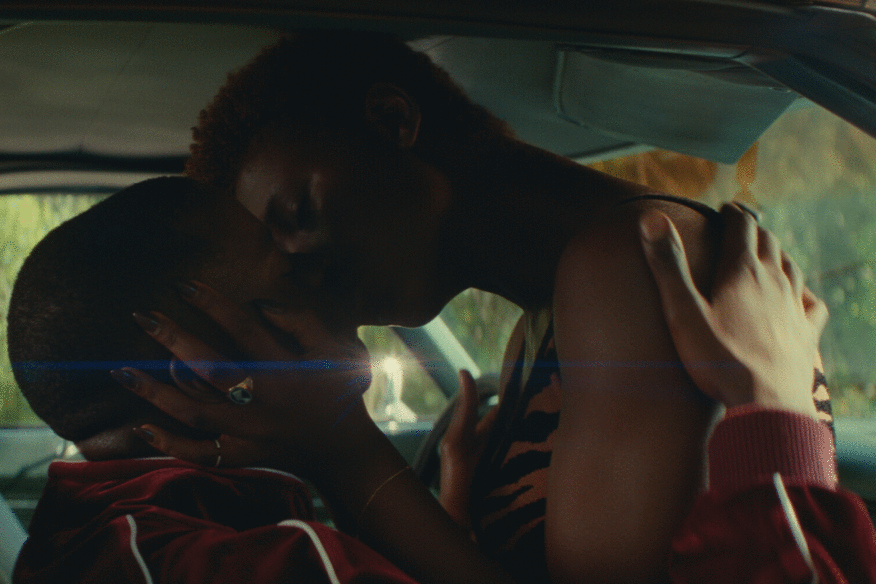Ruth Negga on Passing’s shapeshifting protagonist: ‘she’s the ultimate threat to white society’
The actor on badly behaved black women, getting what you want and her complex character in the new Netflix monochromatic drama.
Rachel Mantock
11 Nov 2021

Courtesy of Netflix
Set in the heat of summer in 1920s Manhattan, the first few scenes of Rebecca Hall’s new film Passing see Irene (Tessa Thompson) seeking a cool breeze in the conservatory of the opulent Dalton Hotel. It is there, on a chance encounter, that she runs into an old childhood friend, Clare (Ruth Negga). Both women are of mixed-race heritage, and in this environment, they are both “passing” as white women, unsuspected by the upper class, white clientele around them.
While Irene is cautious, hiding behind a low-cut hat covering most of her face, Clare is pulling off this performance in plain sight. She does it so well, actually, that Irene doesn’t initially recognise her. A black-and-white take on Nella Larsen’s 1929 novel of the same name, Passing explores the ensuing relationship between the two women and the different lives they have chosen to live, and how they both cope with marginalisation. As Irene puts it: “All of us are passing for something or other. Aren’t we?”
With a blonde bob that flicks at the ends, Clare is almost always dressed in pastel floaty dresses and furs, and carries herself like any other archetypal blonde bombshell of the time. In contrast, when we meet in London to discuss this role, it’s a bit like meeting Clare’s alter ego at first glance. Ruth Negga, 39, sports a sleek, high black ponytail, her eyes are framed by dark feathered lashes and liner, and her crossed legs are encased in red leather boots that stretch up to her thighs. She has all the same intensity as Clare when she speaks, but without any of the uneasiness her on-screen persona creates. Plus an Irish accent. “I never really got used to the blonde hair,” she says.

Clare is playful, but reckless at times, and consumed with self-interest. “She probably isn’t likeable, but you’re drawn to her anyway,” says Ruth. From announcing that motherhood hadn’t been particularly exciting, or fulfilling for her, to admitting she enjoys her husband’s absences, Clare “pushes the boundaries” of how all women were supposed to act. This is reinforced by the fact that her daughter is only mentioned in passing a few times, and never makes an appearance. But if we unpack that discomfort, some of it is rooted in expectations of humility and morality from black women, in a way we don’t have for others.
“We’re often unsettled by women with black heritage who aren’t conventionally likeable, and it’s just another way of placing them within confines,” she explains. “Why can’t she be careless, selfish, and illustrious all at once? We deny women of colour complexity.”
As Clare goes on, boasting about her plans to send her daughter to European boarding school (clearly somewhat relieved by just the idea of it), Irene is unsettled. She’s the antithesis: her identity is rooted in her role as a mother and wife, a role she doesn’t appear to have questioned, until Clare whirlwinds back into her life. It sparks a keen fascination and perhaps a subtle desire between the two. There’s a lust for each other’s lives, representing a direct opposite to their own, that spills over into palpable chemistry between them both, and slowly draws in everyone around them, too.
Set during the Harlem Renaissance — an artistic and intellectual movement among black Americans — Passing contrasts this with the ruling, white classes. The film is ultimately about the choices women make and how they navigate through a world where the odds are stacked against them.
At first, you might try to make sense of Clare’s behaviour with more obvious explanations, especially watching through the lens of modern viewers. Perhaps she loathes her blackness or has gone to extreme lengths to achieve a life that’s not limited by the restraints put on black women of the time.
“Why can’t she be careless, selfish, and illustrious all at once? We deny women of colour complexity”
But there are flashes of mischief in Ruth’s portrayal too. Maybe she’s someone bored by society’s rules and structure, who finds satisfaction in mocking them and her oppressors. She has all the things they respect: wealth, status, and white, upper-class family life. And she’s hiding out in the open among those who don’t believe she’s entitled to this existence. “Clare represents an ultimate threat to white society,” says Ruth “She has the audacity to take what she wants.”
While her assimilation into whiteness might be somewhat of a game to Clare, glimpses of how she feeds into oppressive roles as part of this, create a sense of unease. Her whole facade also depends on the privilege of lighter skin, giving her access to a level of assimilation darker-skinned black women can not take part in. This feels especially evident in her interactions with Irene’s housekeeper Zu (Ashley Ware Jenkins), who has darker skin, playing into a clear, yet unspoken, hierarchy based on skin tone. “Those brief interactions with Zu are colourism at play, even within a space that’s meant to be safe, like Irene’s home,” says Ruth.
Recent shows like Insecure and Big Mouth tackle the issue of codeswitching being a vital tool for black people in white environments. In contrast, Passing‘s Clare is never quite able to shake the persona she’s cultivated for white society, rattling off white, upper-class soundbites around the black, Harlem crowd. Despite forming kinships with Zu, Irene’s young boys, and Irene’s husband Brian (André Holland) – which evolves into a flirtation that alludes to more, in parts — even within these interactions, Claire is almost cosplaying blackness, playing dress-up with Irene’s life, because she chose the opposite. Ruth adds: “She absolutely does fleetingly say things in parts, that make everyone recoil, yet you can’t quite recoil,” says Ruth. “She almost enjoys creating that discomfort in others.
“The power she has over others, the friction she causes in Irene and Brian’s relationship — she revels in this. While appearing to be entirely unaware of the hold she has on others. She has this intense allure with everyone, even when creating deep unease.”
Plunging those around her into discomfort is a running theme, like when Clare’s white husband (Alexander Skarsgård) candidly announces that he hates Black people – none the wiser that his wife is part black – as Clare beams at Irene, amused. By the end of Passing, you’re less sure whether Clare’s reaction was rooted in desperation to assimilate, self-loathing, fear of being found out, or just a twisted inside joke with herself.
“She’s never what you expect, at any point. That’s relatable, I think I’m like that, too,” says Ruth. She points out that the protagonist she portrays has both fleeting and deep motivations, none of which are revealed, purposefully. “There is a small thrill in not being what people expect, even when you’re ultimately challenging preconceptions rooted in racism, or sexism. It’s instinctive for me to push at that sort of expectation.”
The parties Irene’s Harlem crowd throw are glamorous, lively, hedonistic even, and unequivocally black, all of them saturated in the thrill of the moment — especially Clare. “As much as this is about race, the complexity of mixed heritage, and survivorship in that context, it’s also about black joy,” says Ruth. “And that’s beautifully shown by the lively Harlem party scenes, where Clare thrives in that excitement, even though it’s underpinned by a darker reality. Showing black joy is so important. Without it, we end up reducing black narratives, and actors, to being a commentary on racism.”
Her fall from the balcony at a party in the film’s climax feels both inevitable and as if she was still somehow in control of her narrative. Clare is so flippant in her rejection of her own blackness in return for a cushy lifestyle, but in the end, she pays a price. Although she seemed to stomach the dehumanisation at the hand of her racist husband, alienation from her true community, and a life marred by drama, lies and pretence, her death is open to interpretation. Was she pushed, after becoming an object of scorn for her carelessness? Or did she jump knowing her lies were about to catch up with her? “There is a kind of restlessness,” Ruth says of living a life of constant pretence. “But there’s also sadness and loneliness, too.”








